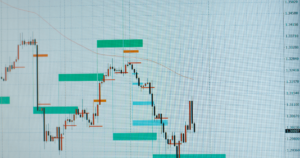The Influence of Regret on Trading
Regret can manifest in various ways in the world of trading. Traders often experience regret when they miss out on potential profitable trades due to fear or hesitation, or when they make trading decisions that result in losses. This powerful emotion can lead to irrational behavior, such as entering or exiting trades prematurely, second-guessing trading strategies, or even completely avoiding trades out of fear of making mistakes.
The Cycle of Regret
When traders experience regret over a trading decision that resulted in a loss, they tend to dwell on what they could have done differently. They may replay the scenario in their minds, imagining alternative outcomes and potential profits. This cycle of regret can be mentally exhausting and emotionally draining, often leading to a lack of confidence and increased anxiety in future trading decisions.
Overcoming Regret in Trading
- Acceptance and Learning: Accept that losses and mistakes are an inherent part of trading. Instead of dwelling on past regrets, focus on learning from each experience. Analyze the reasons behind the loss objectively and identify areas for improvement in your trading strategy or risk management approach.
- Maintain a Trading Journal: Keep a detailed record of your trades, including the rationale behind each decision, entry and exit points, and the outcome. Regularly review your trading journal to identify patterns, evaluate the effectiveness of your strategies, and make informed adjustments.
- Develop Emotional Resilience: Cultivate emotional resilience to navigate the ups and downs of trading. Practice mindfulness and self-awareness techniques to recognize and manage emotions as they arise. Implement stress-reducing strategies such as exercise, meditation, or engaging in hobbies outside of trading to maintain a balanced mindset.
- Stick to a Trading Plan: Having a well-defined trading plan is essential to mitigate regret-driven impulsive decisions. A trading plan outlines your risk tolerance, entry and exit criteria, and overall strategy. By adhering to your plan, you can minimize the impact of regret and make rational decisions based on predetermined guidelines.
Key Takeaways
- Regret can negatively impact trading decisions, leading to irrational behavior and missed opportunities.
- Accept losses as part of the trading journey and focus on learning from each experience.
- Keeping a trading journal helps to identify patterns, evaluate strategies, and make informed adjustments.
- Building emotional resilience and practicing mindfulness aids in managing regret and maintaining a balanced mindset.
- Following a well-defined trading plan reduces impulsive decisions driven by regret and enhances overall trading discipline.
Conclusion
Regret is a powerful emotion that can significantly impact a trader’s mindset and decision-making process. By recognizing and addressing the influence of regret, traders can develop resilience and adopt a proactive approach to their trading activities. Embracing losses as learning opportunities and maintaining emotional balance are key factors in overcoming regret and achieving long-term trading success. Remember, trading is a journey of continuous improvement, and managing emotions is an integral part of that journey. Stay focused, disciplined, and resilient to navigate the challenges and uncertainties of the financial markets.








